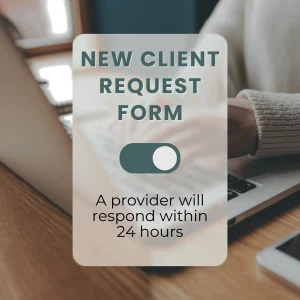
5 Time Management Strategies for Peak Performance
Time management strategies are developed early on for many of us, but recognizing the need to fine-tune these skills can help achieve optimal performance and reduce time-wasters in both personal and professional arenas. It involves strategically organizing and allocating your time to tasks and activities that align with your goals and priorities. The essence of time management for peak performance lies in maximizing efficiency and productivity, enabling individuals to unlock their full potential and excel in their endeavors.
Assessing Your Time Management Strategies
The first step towards effective time management is assessing your current skills. Identifying time wasters and utilizing tools for assessing time management efficiency can provide valuable insights into your productivity patterns. Common time wasters include unnecessary meetings, frequent interruptions, and excessive multitasking, all of which can significantly impede your ability to perform at your best.
Prioritization Techniques for Time Management
Mastering prioritization techniques such as the Eisenhower Matrix and the ABCDE Method is crucial for managing your time effectively. The Eisenhower Matrix helps you categorize tasks based on urgency and importance, allowing you to focus on what truly matters. The ABCDE Method further refines prioritization by ranking tasks based on their significance, ensuring that you dedicate your time and effort to activities that yield the highest returns.
Delegating Tasks to Improve Time Management
Delegating tasks is a key strategy in effective time management that can significantly enhance peak performance. By entrusting responsibilities to others, you not only free up valuable time to focus on higher-priority tasks that require your unique skills and expertise but also empower your team or colleagues to develop and contribute their abilities. Delegation requires identifying tasks that others can perform efficiently and providing clear instructions and support as needed. This approach not only optimizes productivity across the board but also fosters a collaborative environment where everyone can focus on their strengths. Mastering the art of delegation allows you to manage your time more effectively, ensuring that you and your team are working as efficiently as possible towards common goals.
Effective Planning and Scheduling
A well-structured plan serves as a roadmap for your daily activities and long-term objectives. Creating a daily plan helps you allocate specific time slots for each task, reducing procrastination and ensuring that you stay on track. Long-term planning, on the other hand, is essential for setting milestones and achieving your goals over time. Balancing short-term tasks with long-term objectives is key to sustained peak performance.
Avoiding Procrastination and Staying Motivated
Overcoming procrastination is a common challenge in the pursuit of peak performance. Procrastination not only delays task completion but also impacts motivation and overall productivity. Techniques to combat procrastination include breaking tasks into smaller, more manageable parts, setting clear deadlines, and rewarding yourself for completing tasks. Staying motivated over the long term requires setting meaningful goals, regularly reviewing progress, and adjusting strategies as needed. Maintaining a positive mindset and surrounding yourself with supportive peers can also contribute significantly to sustained motivation and success. By addressing procrastination head-on and cultivating a motivated mindset, you can ensure consistent progress towards your time management and performance goals.
Tools for Better Time Management Strategies
Trying out different tools and finding the right one for you can level up your time management strategies. Although this takes some trial and error, when you find the right one, it’s a game changer. Here are some of our favorites:
- Trello for task organization
- Google Calendar for scheduling
- Pomodoro timers for maintaining focus
- Google Tasks for reminders and to-do lists
By integrating these tools into your daily routine, you can enhance your ability to manage time effectively, prioritize tasks, and stay on track towards achieving your goals.
Time Management in a nutshell
Time management is an indispensable skill for achieving peak performance. By assessing your time management skills, setting SMART goals, mastering prioritization techniques, and implementing effective planning and scheduling, you can enhance your productivity and achieve a balance between work and life. Embracing these strategies will not only help you reach your full potential but also ensure long-term success and fulfillment.
Ready to start Therapy?
FAQ's About Therapy in New Jersey
How do I get started as a new client?
New Clients can reach out to us directly via call, text or email here:
Or, you can complete a new client form and we’ll reach out to you within 24 hours here:
What are your specialties?
Our therapists have dedicated their clinical work to specific niche areas. Check out our therapy service page here to learn about our areas of expertise
What type of therapy do you offer?
We offer traditional and non-traditional therapy
Traditional therapy, such as talk therapy incudes:
- Individual therapy
- Couples Counseling
- Family Therapy
- Cognitive Behavioral Therapy
- Emotion-Focused Therapy
Do you offer Ketamine Therapy?
Yes! Ketamine has shown promise in treating various mental health conditions, including PTSD, Anxiety, Depression, Phobias and OCD. As Ketamine therapy providers, we offer this service to help clients break cycles of thinking traps that lead to compulsive behaviors.
Is Online Therapy As Effective As In-Person Therapy?
Online therapy is essentially face-to-face counseling, just conducted remotely. Studies show that teletherapy is as effective as traditional counseling. Professional organizations and state governments recognize its benefits and have set regulations for it. However, like any therapy, its success in achieving your goals isn’t guaranteed. It’s important to discuss with your therapist whether teletherapy is working for you.
What age groups do you serve?
Currently, we work with New Jersey clients ages 10+
Do you offer traditional talk therapy?
of course! though we have some unconventional therapy approaches, we are rooted in evidenced based practices. Talk therapy is a major player in the therapy room! See What we Treat and Integrative Services for more information
What Geographic Areas Are Served?
Currently, we serve clients in New Jersey and are expanding to other states as telehealth laws evolve. While telehealth offers the convenience of attending sessions from anywhere, state laws require clients to be in-state during their session.
Does my insurance cover my visits?
We provide”Courtesy Billing” for clients who are using the Out-of-network insurance benefits.
Our Insurance Page shares a small blurb about Why We Left Insurance Panels
Can I Change Therapists If I'm Not Happy?
Yes, you can switch therapists to another provider within the practice, or we can provide you a referral if preferred. We want to ensure that your time and effort are well spent, and that you are getting the relief you need, that’s why we work collaboratively with each other in the practice, as well as outside therapists who we know and trust.
What is your cancellation policy?
We ask that clients provide at least 24 hours notice in the event that they need to cancel to avoid the 50% cancellation fee. we understand that life happens and do our best to be flexible & reschedule.
How Do I Know If Therapy Is Helping?
You should feel like you’re making progress. Signs it’s working include:
Feeling comfortable talking to your therapist
Your therapist respects boundaries
You’re moving towards your goals
You feel listened to
You’re doing better in life
Your self-esteem is getting better
Is Online Therapy Easy to Use for Non-Tech-Savvy People?
Yes, it’s pretty simple to access sessions. You’ll need basic internet skills, such as opening and visiting the patient link sent to you via email. It’s similar to video chatting like Facetime or Zoom. We can also walk you through it on the phone the first time to ensure a strong connection
What Questions Should I Ask My New Therapist?
Feel free to ask anything. Some good questions are:
- How often will we meet?
- What do you specialize in?
- What experience do you have with my issue?
- What outcomes can I expect?
- How will I know I’m progressing?
- How long do you usually work with clients?
- How will we set my treatment goals?
How Should I Prepare for My First Session?
Showing up is all that you need to do! But if you really want to get the most out of session, it could help to take some time to think about what you want from therapy. It helps to write down your goals, questions you have or things that you feel are important to share.
What is the difference between associate therapists & fully licensed therapists?
Our Qualifications:
Our founder, Rebecca Sidoti, is a highly qualified, state-licensed therapist and supervisor with extensive training in anxiety related disorders and innovative treatment such as Ketamine Therapy. Mind by Design Counseling adheres to standards set by the our governing counseling boards.
To see each providers credentials, training and licenses, visit our “Meet the Therapists” Page to learn more.
- LAC/LSW are therapists who may practice clinical work under the supervision of a fully licensed therapist.
- LPC/LCSW are therapists who have completed the necessary clinical hours post-graduation under supervision and can practice clinical work independently.
Is Virtual Counseling Suitable for Everyone?
Online therapy might not be as effective for individuals with chronic suicidal thoughts, severe trauma, significant mental health history, or those recently in intensive care. Such cases often benefit more from traditional, in-person counseling. We’ll help you decide if our online services are right for you during your intake and evaluation.
What Equipment is Needed for Online Therapy?
To join a session, log in using the credentials we provide. No downloads are needed. Our platform, compatible with both individual and group sessions, requires:
A computer or mobile device with a webcam and internet access.
We’ll help you test your setup before your first appointment to ensure a reliable connection. iOS users should use the Safari browser for mobile and tablet sessions.
What Questions Will Therapists Ask Me?
It depends on your goals. Expect questions about your thoughts, feelings, relationships, work, school, and health. They’ll ask to understand your therapy goals.
How Do You Keep Client Information Secure?
Security and Confidentiality of Sessions:
Your privacy is crucial to us. We use TherapyNotes, a HIPAA-compliant platform, ensuring secure and confidential teletherapy sessions. This platform’s security features include encrypted video connections, secure data transfers, and encrypted databases, ensuring your information is safe at all times.
What is VRT used for?
we use VRT to support Exposure Therapy, a long standing traditional therapy modality to treat phobias, anxiety and stress. we send a headset directly to your home so you can access VRT from anywhere.
VRT not only helps with exposure therapy for phobias, but is great for ADHD, mindfulness, PTSD and social anxiety.












